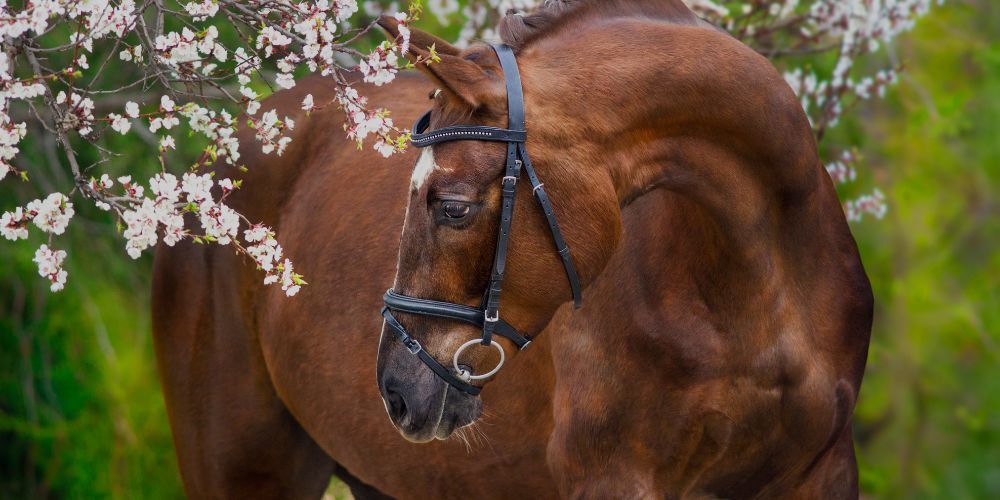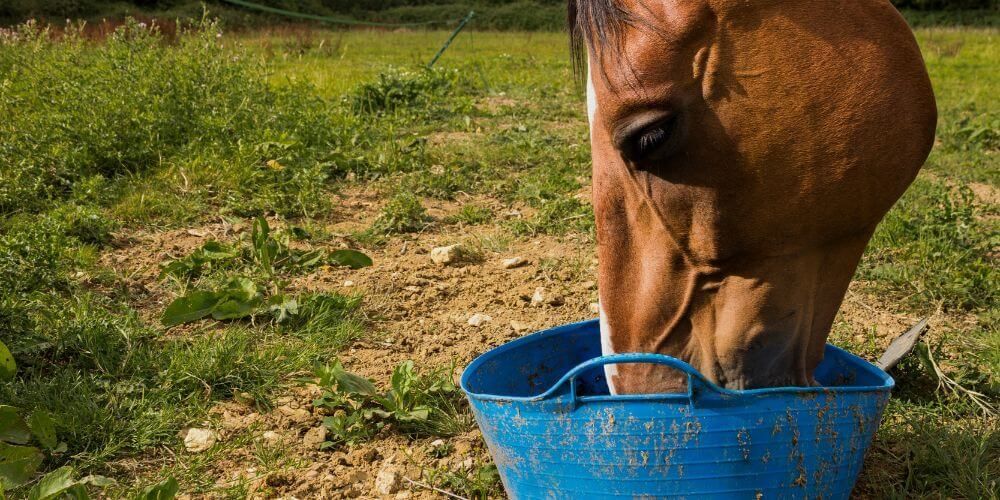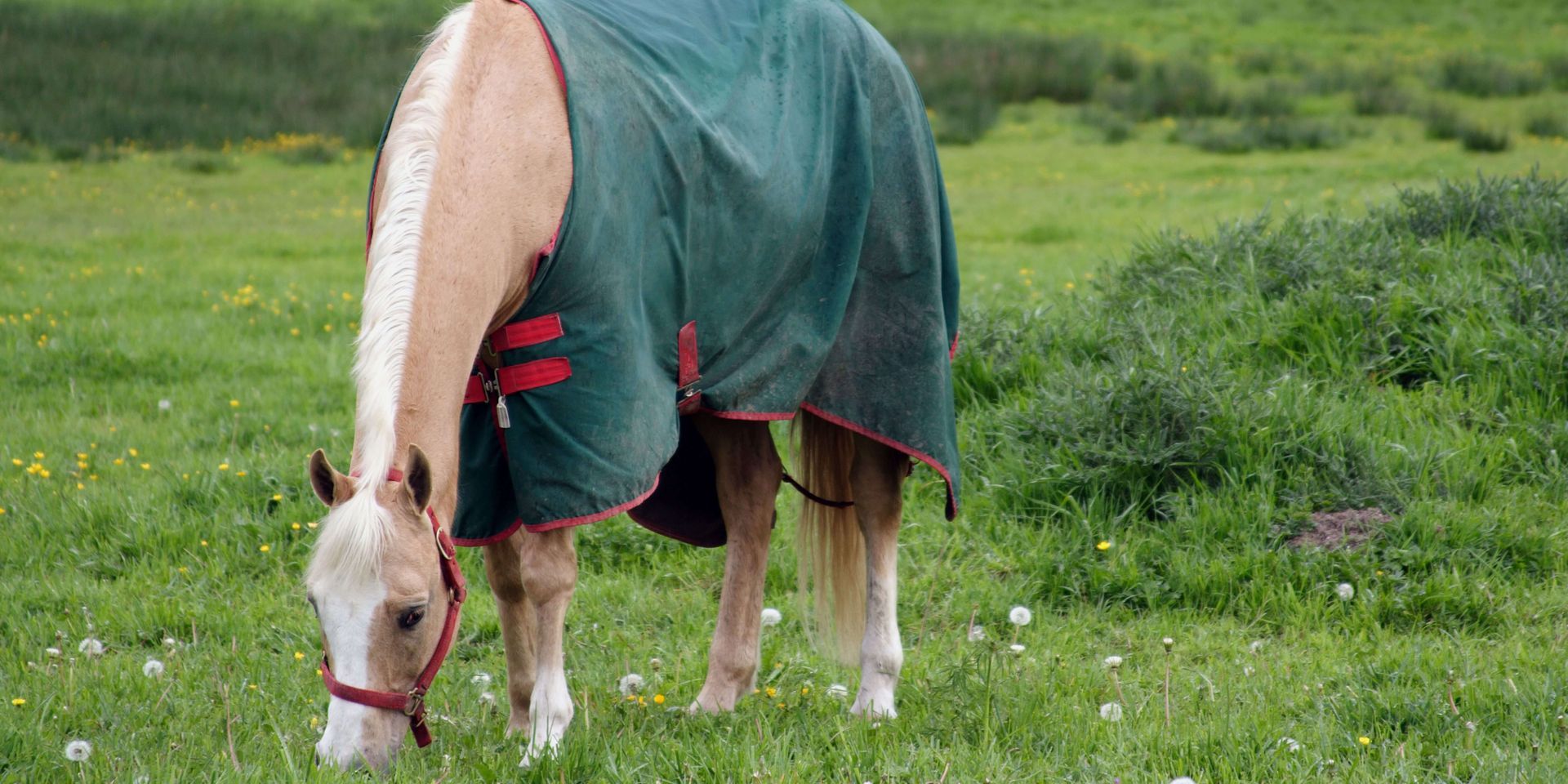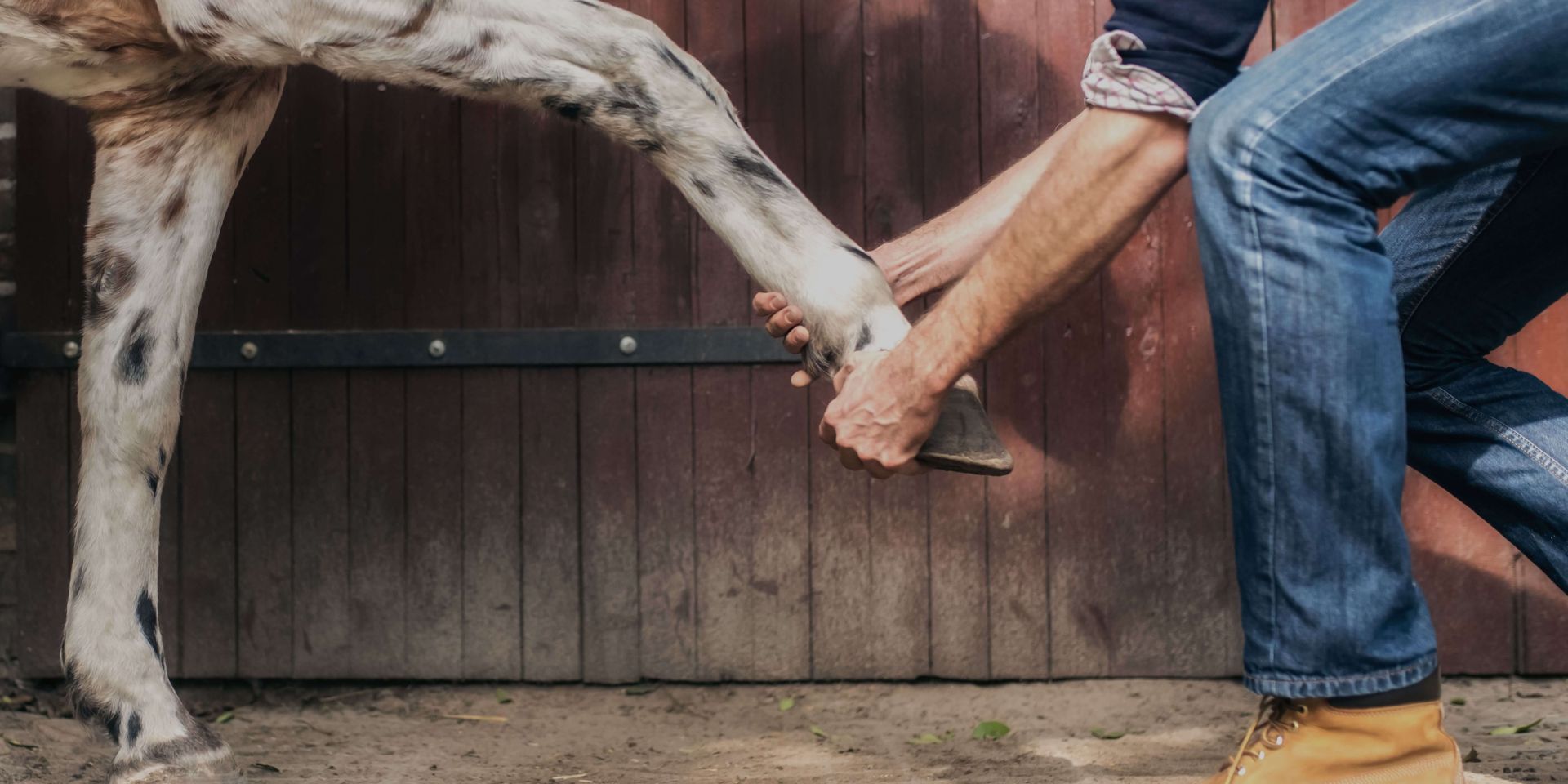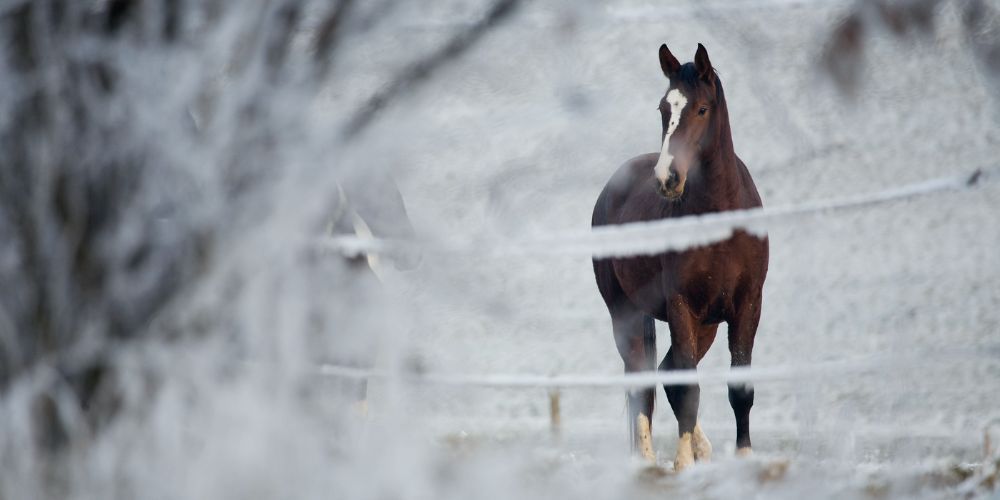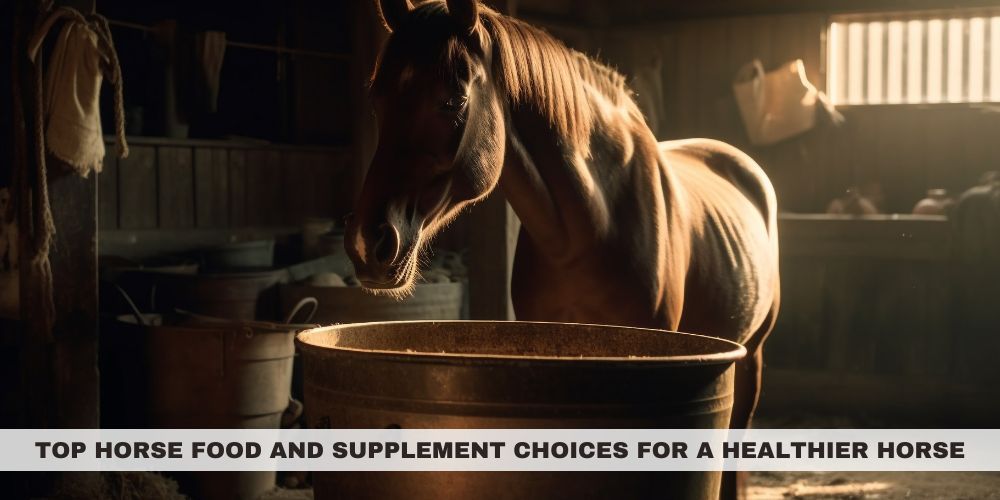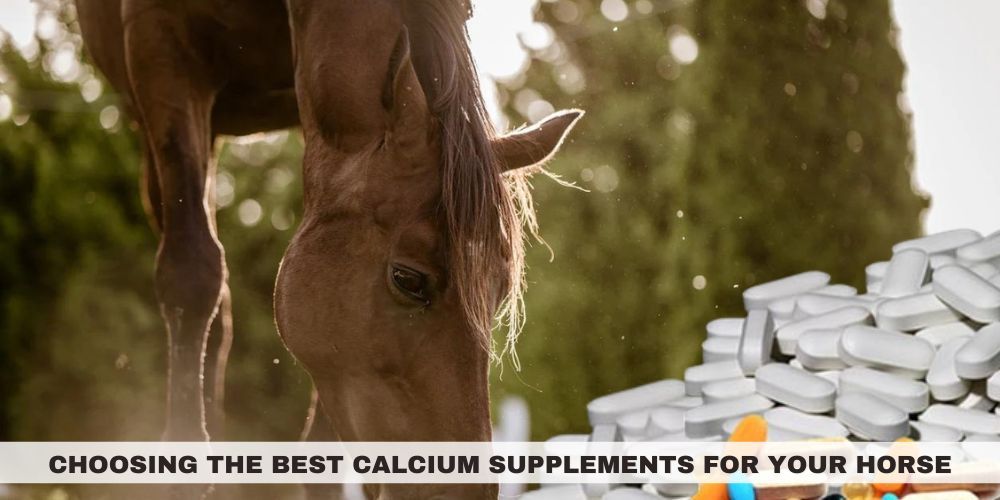What Do Rabbits Eat? A Guide To Rabbit Nutrition
Rabbits are delightful and social creatures that make wonderful companions. They are herbivores and continuously graze for up to six hours a day. Whether you're a seasoned rabbit owner or considering bringing one into your home, understanding their dietary needs is crucial for their well-being. In this guide, we'll explore various aspects of a rabbit's nutrition, focusing on their natural diet and the essential elements contributing to their overall health.
Understanding a Rabbit's Natural Diet
Rabbits and horses have almost the same digestive system, meaning they have a cecum and function as hind-gut fermenters. Thus, you’ll need to be careful about introducing new foods too quickly since this can disrupt their natural digestive flora, leading to an overgrowth of gas/toxin-producing bacteria. This disturbance may result in the rabbit falling ill and dying—in severe cases.
To ensure that your furry friend stays healthy and understands their natural diet in the wild. Rabbits are herbivores, and their diet consists mainly of fibrous plants. In the wild, hay is their primary food source and forms the foundation of their diet. Providing a balanced and nutritious diet for your rabbit involves mimicking their natural eating habits.
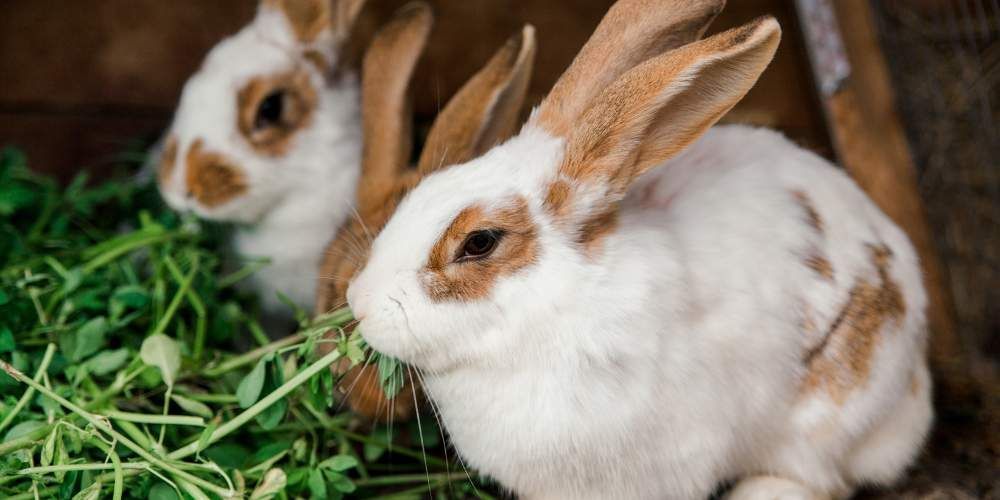
The Core Elements of a Rabbit's Diet
Rabbits have continuously growing teeth and require continuous chewing to maintain their health. Their diet has to have 1/4 to 1/2 cup of a variety of leafy green vegetables daily. A breakdown of a Rabbit’s diet is as follows:
Hay: The Foundation
Hay is the cornerstone of a rabbit's diet, providing essential fiber for proper digestion and dental health. High-fiber hay, such as timothy hay or meadow hay, should always be available to your rabbit. This not only aids in preventing obesity but also helps wear down their constantly growing teeth.
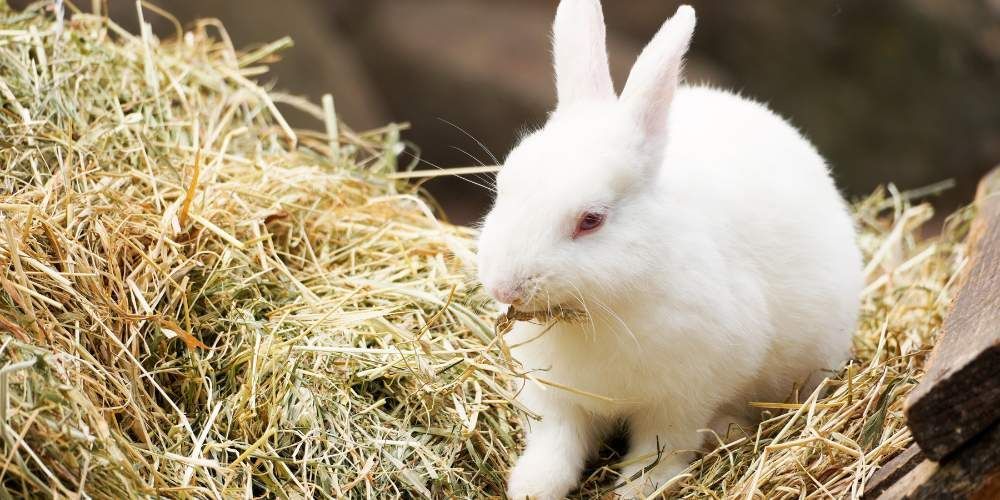
Fresh Vegetables: A Colorful Addition
Incorporating fresh vegetables into your rabbit's diet introduces a variety of nutrients and textures. Leafy greens such as cabbage, kale, broccoli, parsley, and mint contribute to a well-rounded nutritional profile. However, it's crucial to introduce new vegetables gradually and in moderation to avoid digestive issues.
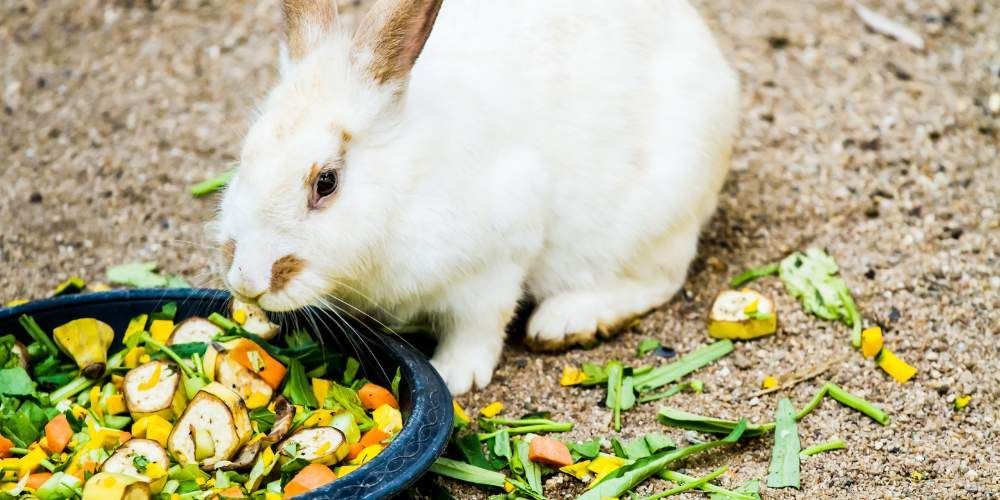
Rabbit Pellets: Nutritional Support
Commercial rabbit pellets are formulated to provide a balanced mix of essential nutrients, including vitamins and minerals. Measure 25g of pellets per kg of your rabbit's body weight. For instance, a medium-sized rabbit (2kg) feeds on a maximum of two full egg cups. Opt for high-quality pellets and ensure they make up no more than 5% of your rabbit's daily food intake.
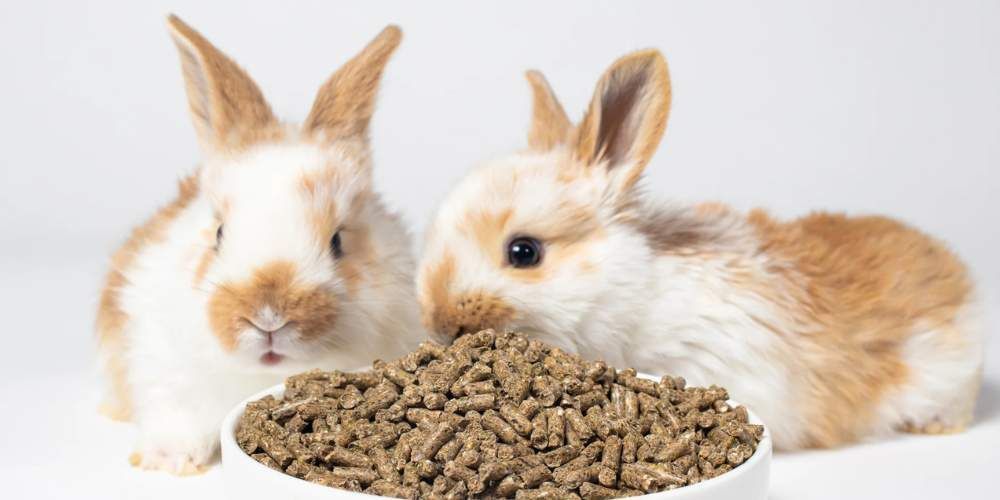
Treats: Occasional Delights
Treats, including fruits like apples and berries or even a vegetable such as carrots, can be given as occasional delights since they are high in carbohydrates. However, fruits should be provided barely due to their high sugar content. Treats are not a substitute for a balanced diet but can be used as rewards for positive behavior.
Hydration is Key
Rabbits require constant fresh water. Ensure that your rabbit has access to clean water at all times, i.e., algae-free in summers and the right temperature in winters, as proper hydration is essential for their overall well-being. Consider using a sturdy water bottle to prevent spills and contamination.
What Not to Feed Your Rabbit
Certain foods can be harmful to rabbits, this means that you should steer clear of any snack foods that contain sugar or are high in carbs. Also, rabbits won’t thrive on any type of bread or cereal, and you should stay away from chocolate, corn, legumes, seeds, and nuts.
Some toxic plants to avoid include Nightshade, Onion and Garlic, Hydrangea, Chrysanthemum, Lilies, Marijuana, Poppies, Unripe potato, Rhododendron, Azaleas, Iris, Daffodil, Rhubarb, Yew, and Hyacinth.
Monitoring Your Rabbit's Diet
Regularly monitoring your rabbit's weight, fecal output, and behavior is crucial to their health. Any sudden changes in appetite, lethargy, or irregular stool consistency should prompt a visit to the veterinarian. Consult with your vet to determine the specific nutritional needs of your rabbit based on factors such as age, breed, and overall health.
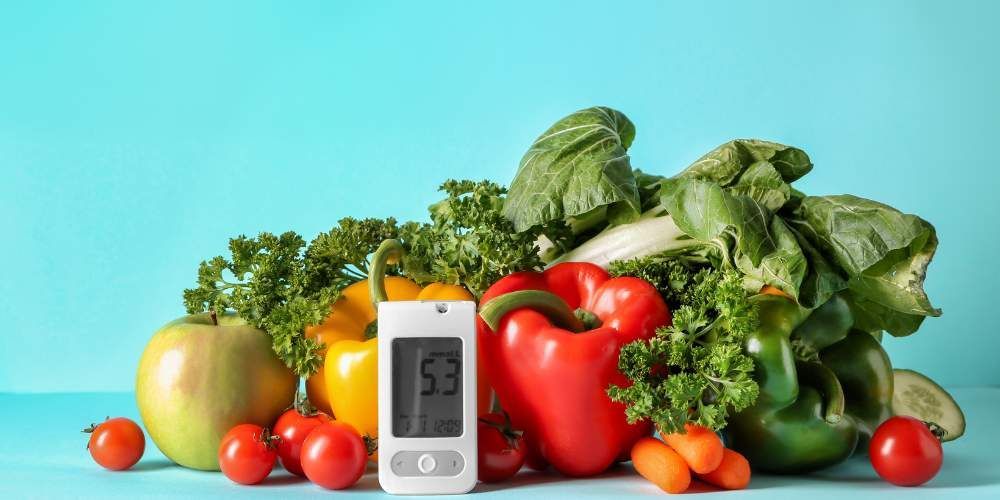
Maintaining your rabbit's health requires a well-balanced and diverse diet. Explore the selection of quality rabbit nutrition products available at our store. From fresh hay to occasional treats, we offer a variety of pet nutrition solutions. Check out American Horse Products to find premium items tailored to meet the specific dietary needs of your cherished rabbits.
American Horse Products was launched in 1999. With our 11,000-square-foot store in San Juan Capistrano, American Horse Products offers the largest inventory of English and Western products and feed in Orange County, California.
FOLLOW US
PRODUCTS
SERVICES
CONTACT US
BUSINESS HOURS
Monday - Friday : 10:00 AM - 5:00 PM
Saturday - Sunday 10:00am -4:oop,m
All Rights Reserved | American Horse Product


